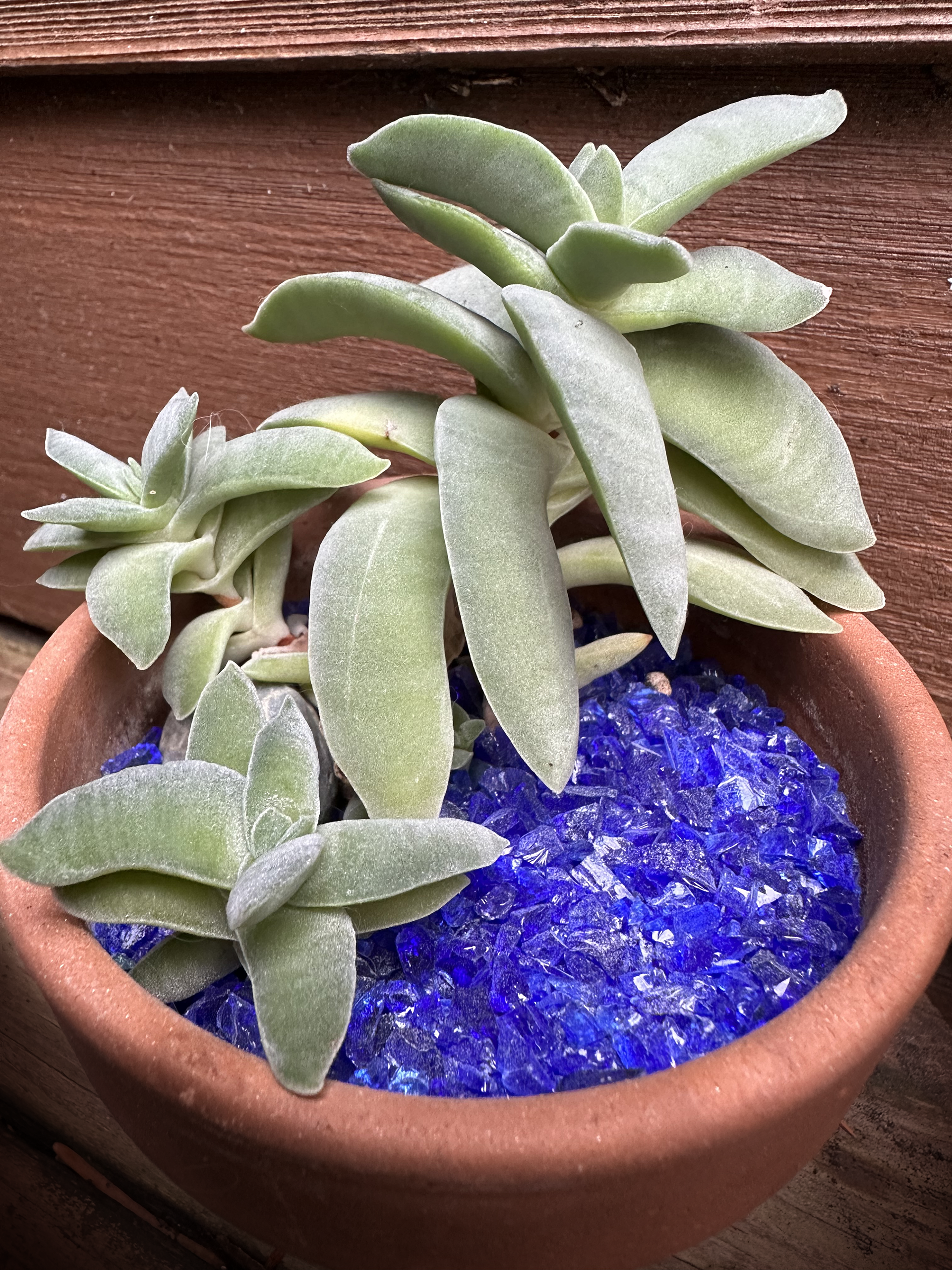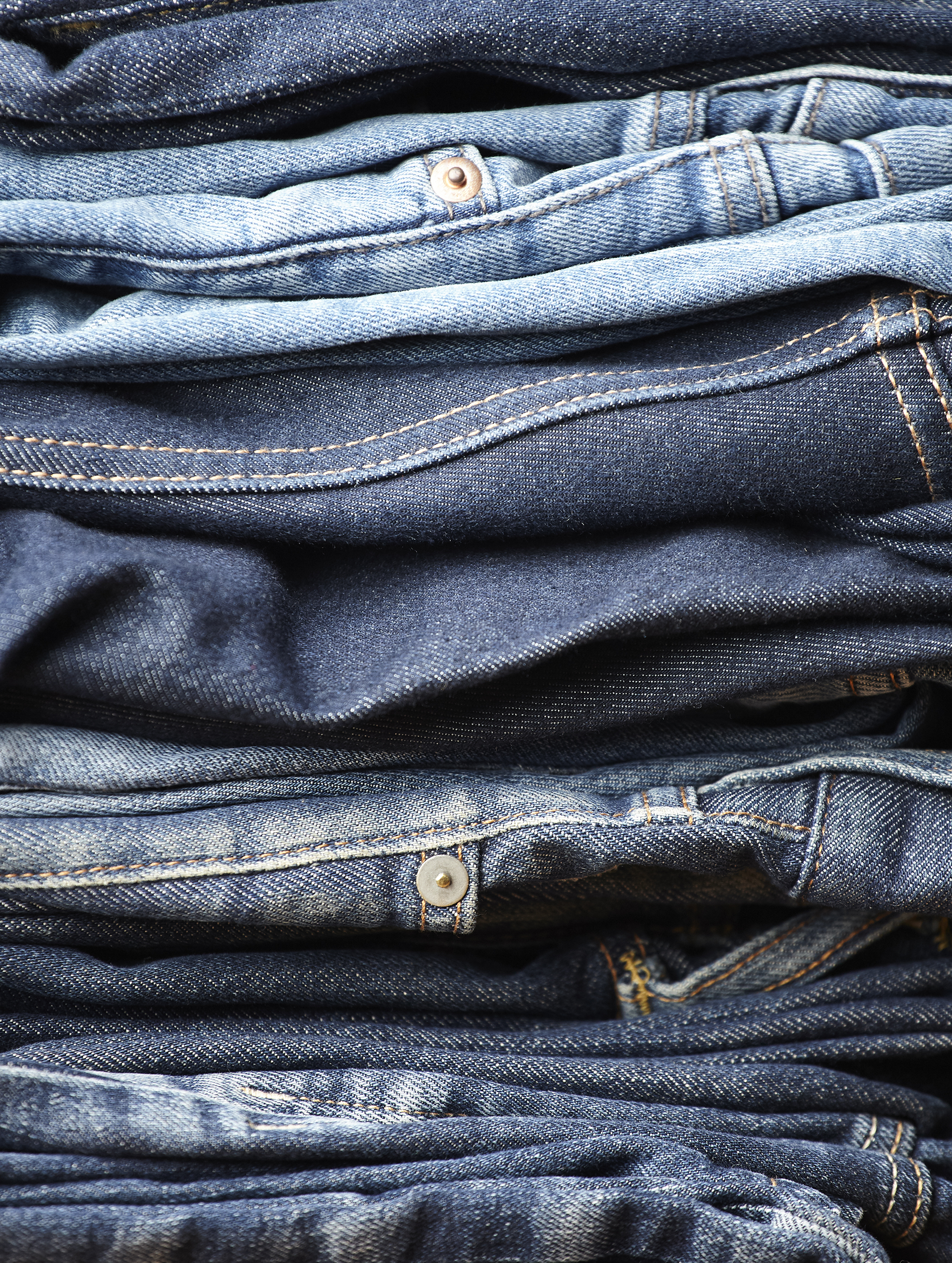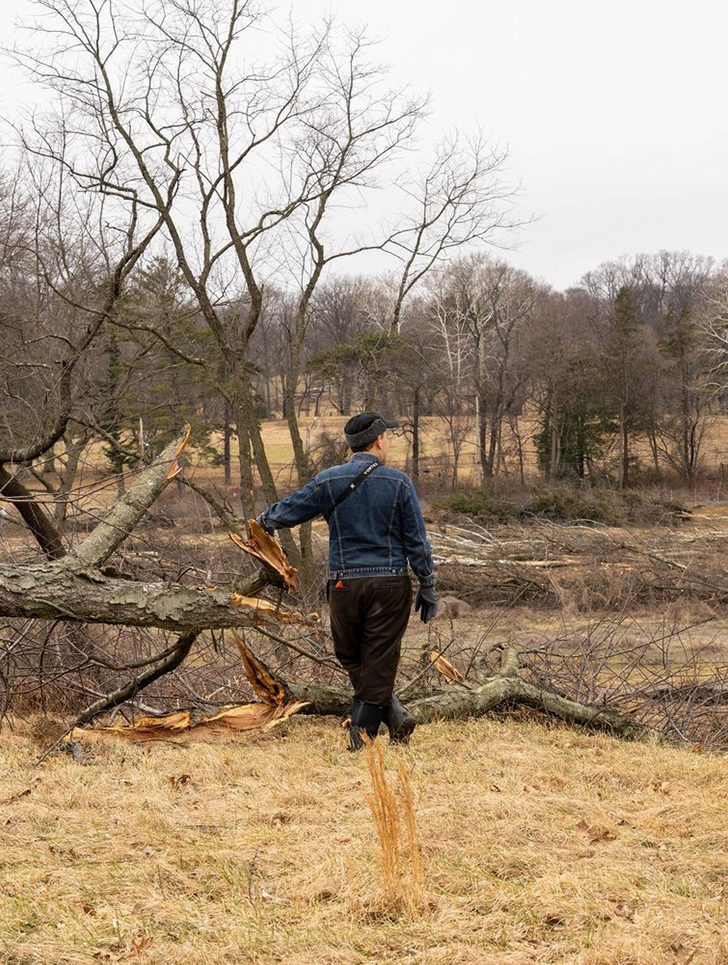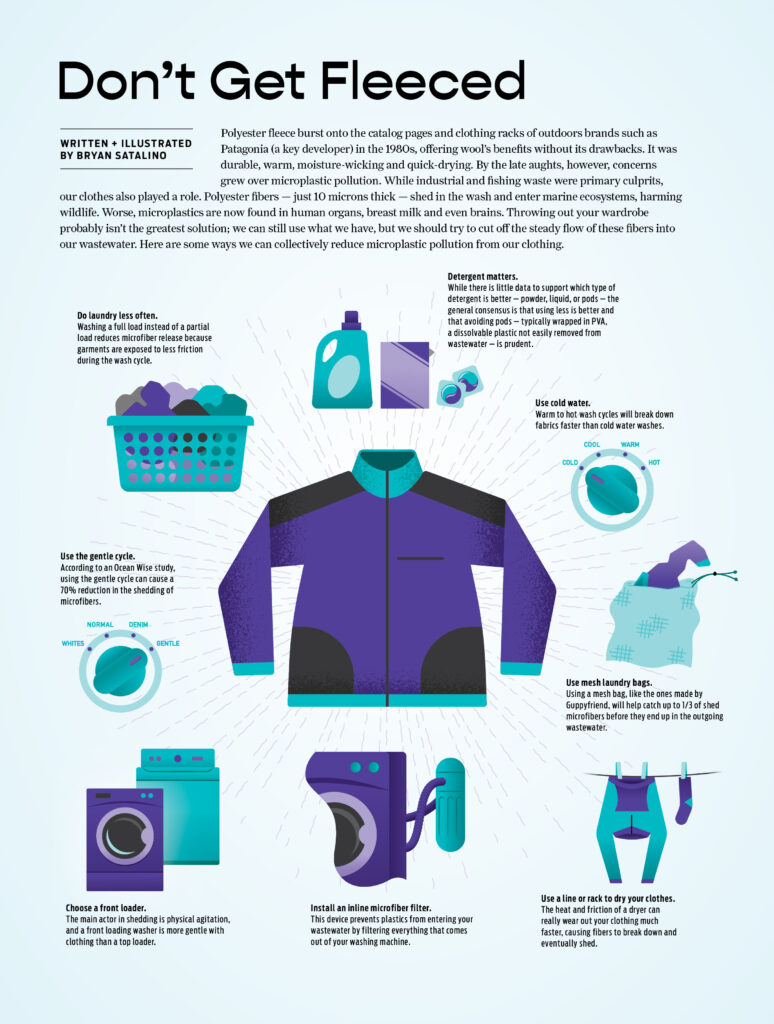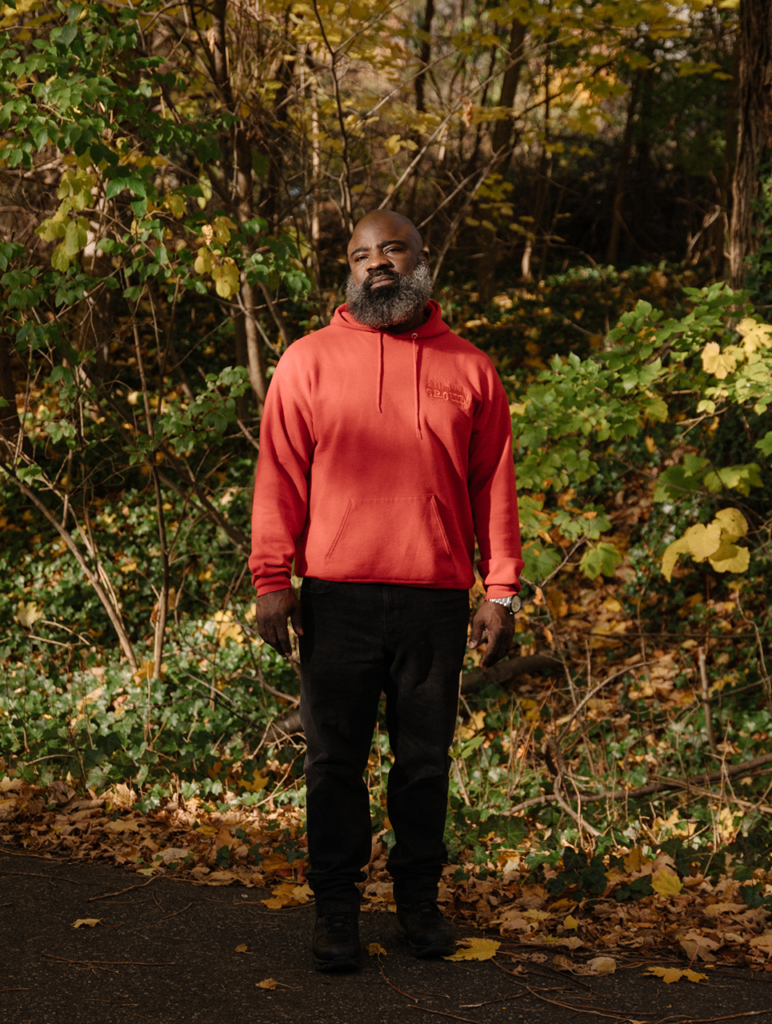
Have you ever watered a neglected plant only to find the water bouncing off the surface of the soil? If so, your potting soil likely has peat in it, which has been a go-to ingredient in potting soil since it’s been sold.
Not only does peat require regular watering to keep its surface permeable, it also has a significant carbon footprint. It may be hard to believe, but even cultivating a garden can have some bad carbon consequences.
Thankfully, someone has been thinking about this problem for the past couple of decades. Mark Highland, the president and founder of Organic Mechanics has been tinkering with soil composition since he was an environmental horticulture student at the University of Florida in the 1990s. While there, friends gave him the nickname “the organic mechanic,” which he eventually bestowed upon his business. After college, he spent time working as a design build contractor in the Northwest, scouring the University of Oregon library to finetune the soil he was working on.

Peat is partially-decayed plant matter that accumulates in bogs and swamps. When left there, it supports diverse fauna and flora, and serves as a significant carbon sink. As a soil amendment in potting mixes, it improves aeration and helps to retain moisture. However, peat must be mined, and in the process of excavation, habitat is lost and carbon is emitted, and there is often water quality degradation as well.
Then there is the pace at which the world is consuming it. As Highland says, “Peat only accumulates at about a millimeter a year in nature. But if I’m a peat company harvesting peat for sale, I want to harvest at least a foot of material a year.”
The environmentally-minded Highland always knew he wanted to start a business, and he sensed there might be an opportunity to create a more earth-friendly gardening product. He earned a master’s degree at Longwood Gardens — which at the time had a partnership with the University of Delaware — studying peat-free alternatives to potting soil. Highland says, “The results of those trials showed that it absolutely could be done and the plants still look beautiful.”
In 2006, he launched Organics Mechanics, transforming his collegiate nickname into his business’ moniker.
The company initially launched two products, a premium potting blend and a planting mix, that were the first commercially available peat-free potting soils. Today you can buy peat-free Miracle Gro mix at Home Depot, but when they launched, there was nothing like it on the marketplace. By creating these peat-free soil alternatives, Highland invented a new product line.
The primary pitch to the public wasn’t — and isn’t — solely that their products are earth-friendly. Highland maintains that their soil holds moisture longer, it doesn’t shrink in the container as much as peat-based mixes, and it lasts longer.
“We say right on the bag, use it twice. You absolutely can use this potting soil for more than one year.”
Organic Mechanics’ product line has swelled from the original two options to twelve — and an exciting 13th is now hitting the shelves — that should appeal to any gardener, whether they are growing in their yard or in containers. The ingredients they use include coconut coir (husk fiber), earthworm castings (poop), compost, aged pine bark and rice hulls, and each is optimized to fit specific needs, such as seed starting. For more expert gardeners, some of these ingredients are sold individually for home mixing.
Perhaps their most intriguing product, the one that Highland says “dollar for dollar is the best value item and the most unique item we have for sale” is their Biochar Blend. Biochar is a charcoal-like substance produced by heating organic matter in a low-oxygen environment, such as a kiln. The result of that process is a stable, carbon-rich material that can be used as a soil amendment. It’s also capable of sequestering carbon, potentially making it a useful tool in combatting emissions.
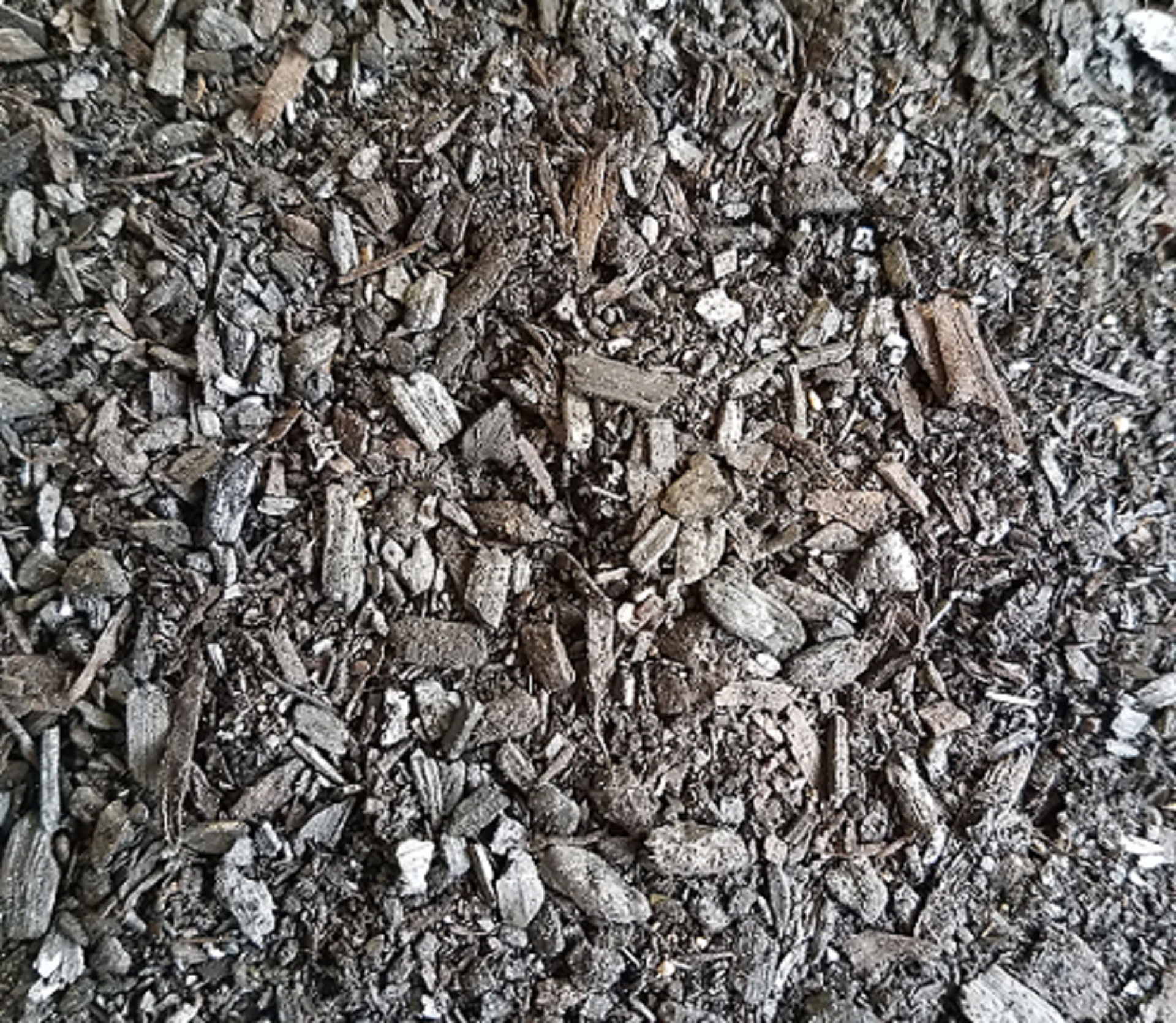
“Biochar doesn’t break down in a human lifetime,” Highland says. Indeed, testing shows biochar can last hundreds or possibly thousands of years.
The potential benefits to gardeners are significant. “If you’re growing fruits and veggies, you’re going to harvest more and they’re going to taste better. [Biochar] increases terpene content in plants. So basil tastes more basil-y. It increases your yield, and it increases the quality of what you’re growing.”
The advantages aren’t only for food growers; Highland says that even if you’re growing native plants and pollinator plants, biochar will increase the soil’s biomass, which will result in more flowers, and therefore more pollen for the pollinators.
Biochar has received some national support as well. The USDA Natural Resources Conservation Service (NRCS) has a program called the Soil Carbon Amendment (which, like so many other USDA initiatives, is on pause) that helps farmers pay for biochar and compost.
“At our prices.” Highland says, “most of the farms got it covered 100%.”
Highland believes that they can frame the issue to appeal to the current administration, and is hopeful the program will be revived.
“Biochar on farms makes American farmers more competitive, makes American farmers produce more yields, which increases their income and viability,” Highland says. “And it also reduces our dependence on inputs and fertilizers from foreign countries.”
On the other end of the spectrum, Organic Mechanics is releasing a first: a decorative product. It’s called Second Sand, and it’s a collaboration among Bottle Underground, OLIN Studio and Organic Mechanics. It’s glass that has been collected by Bottle Underground and then ground back into sand. They are currently offering three colors: Cobalt Blue, Emerald Green and Clear White.
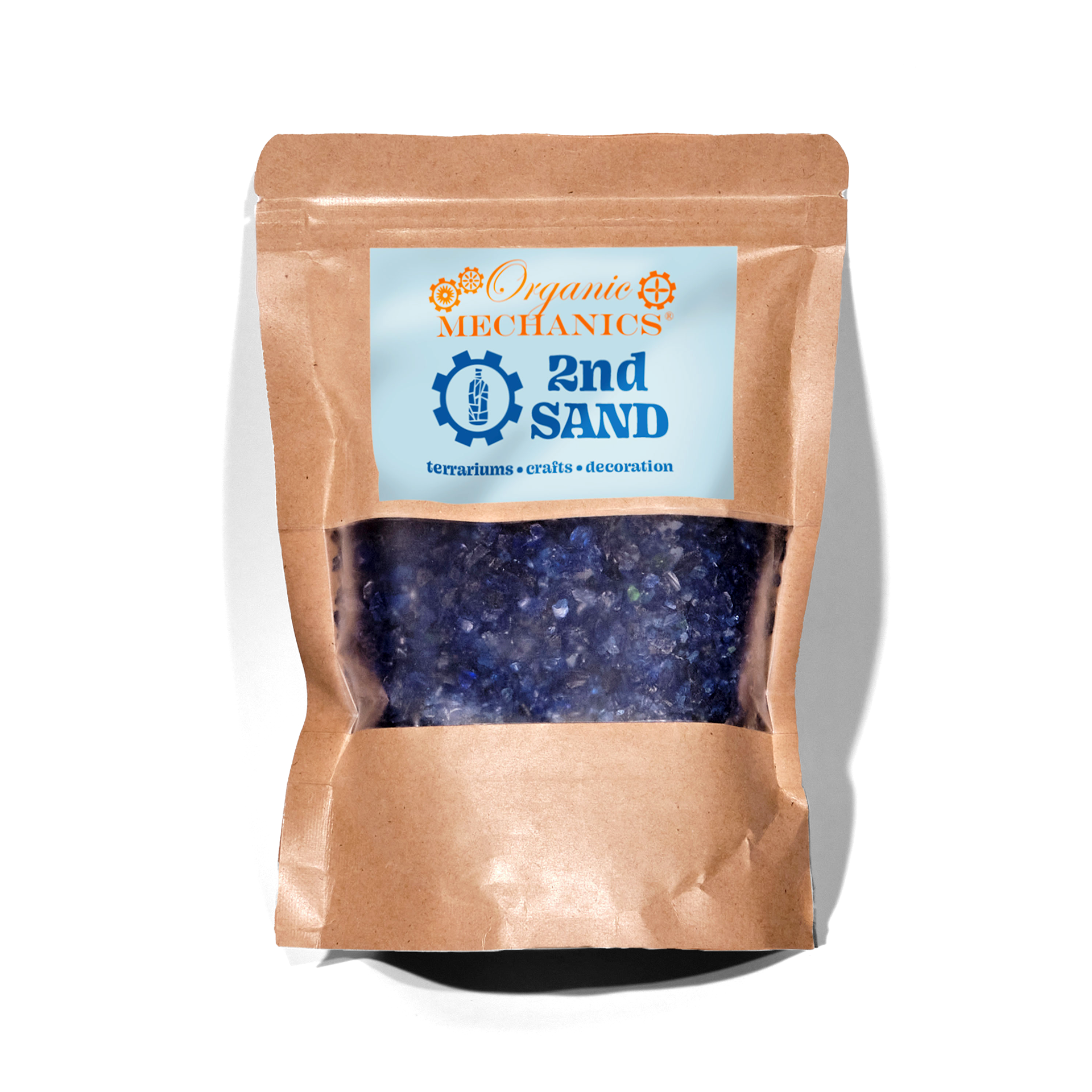
Organic Mechanics showcased Second Sand at the Pennsylvania Horticultural Society Philadelphia Flower Show, and Highland says he saw people getting creative at the Terrarium Make and Take area, making green frames and blue “rivers” with the sand.
“It looks pretty,” Highland says.” It sparkles.”
Second Sand might not be as utilitarian as other Organic Mechanics products, but it’s made from upcycled glass, which is collected by bicycle and replaces other decorative elements which would likely be made from plastic.
“The reason why we did it was because it fits with our earth-friendly origins,” says Highland. “Environmental sustainability is a core value at Organic Mechanics.”
A wide selection of Organic Mechanic products are available at all locations of Kimberton Whole Foods. “Kimberton Whole Foods has been a great partner with us since the beginning. They’ve expanded through the years, and they’ve taken us with them, which we appreciate.”


